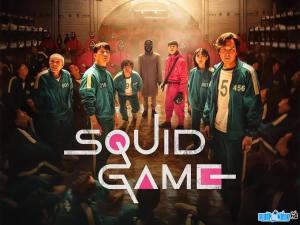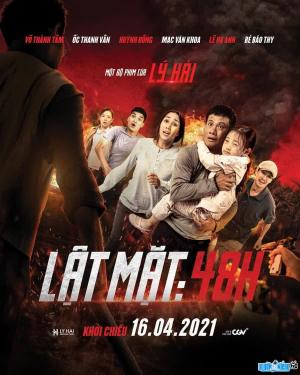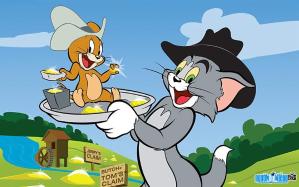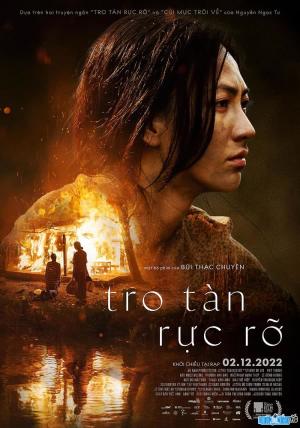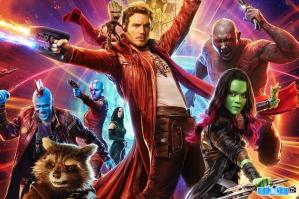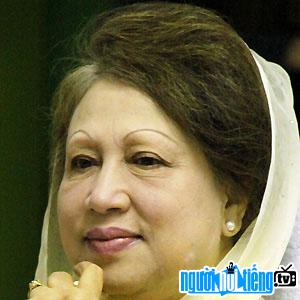Movie Kung Fu Panda
Index of content:
Kung Fu Panda
Working place: United States
Founding day: 15-5-2008 (18 years old)
Population of the world 2008: 6.7 billions
Global rank: #3417
Facebook: facebook.com/KungFuPanda
Email: updating
Phone number: updating
Who is Movie Kung Fu Panda?
Kung Fu Panda Vietnamese title is Kung fu Panda, is a 3D animated film of DreamWorksdo produced by Melissa Cobb, the two main directors are John Stevenson and Mark Osborne. This is a movie about a panda who is very passionate about learning Kung Fu martial arts but without his father's consent, his father forced him to continue selling noodles. The film gives the audience very attractive martial arts scenes, but there is also no lack of humor and humanity.
Kung Fu Panda Vietnamese title is Kung fu Panda, is a 3D animated film of DreamWorksdo produced by Melissa Cobb, the two main directors are John Stevenson and Mark Osborne. This is a movie about a panda who is very passionate about learning Kung Fu martial arts but without his father's consent, his father forced him to continue selling noodles. The film gives the audience very attractive martial arts scenes, but there is also no lack of humor and humanity.
Po is a chubby panda but very Love Kung Fu. However, this bear guy is the laziest guy in Thanh Binh valley. Everything changed when a treacherous snow leopard named Tai Lung was released from prison. Tai Lung planned to attack Thanh Binh valley. And fat Po is the hero chosen to fight Tai Lung. A prophecy said that Po bear is a hero chosen to protect Thanh Binh valley. Thus, a Kung Fu master and his best disciples were mobilized to train Po. Inspired by traditional Kungfu, and with the image of pandas being a feature of China, the movie Kungfu Panda has become a popular movie produced by DreamWorks. In 2008, the film was released, then quickly received much attention and love from the audience.
The film was introduced at the Festival. Cannes film (France) May 15, 2008. On June 6, 2008, the film was released in the US. In Vietnam, the film was screened in theaters on June 27, 2008. Right after the first week of premiere at USA, Kung Fu Panda achieved sales. revenue of 60.2 million USD. The film consecutively topped multiple charts for the week, surpassing Sex And The City to climb to number one on June 8, 2008. Only two weeks after its premiere in the Chinese market, the film's revenue reached 6 million yuan (nearly 2.4 million USD). In total, the worldwide gross of Kungfu Panda was $631. 908. $951.
Actor:
- Jack Black
- Dustin Hoffman
- Angelina Jolie
- Ian McShane
- Seth Rogen
- Lucy Liu
- David Cross
- Randall Duk Kim
- James Hong
- Dan Fogler
- Michael Clarke Duncan
- Jackie Chan
Close relationship
Updating!
When was Movie Kung Fu Panda born?
Kung Fu Panda founding day 15-5-2008 (at the age of 18).
Where is Movie Kung Fu Panda's birth place, what is Zodiac/Chinese Zodiac?
Kung Fu Panda was born in United States. is a Movie, whose Zodiac is Taurus, and who Chinese Zodiac is The Rat. Kung Fu Panda's global rank is 3417 and whose rank is 27 in list of famous Movie. Population of the world in 2008 is about 6.7 billions persons.
Kung Fu Panda founding day 15-5-2008 (at the age of 18).
Where is Movie Kung Fu Panda's birth place, what is Zodiac/Chinese Zodiac?
Kung Fu Panda was born in United States. is a Movie, whose Zodiac is Taurus, and who Chinese Zodiac is The Rat. Kung Fu Panda's global rank is 3417 and whose rank is 27 in list of famous Movie. Population of the world in 2008 is about 6.7 billions persons.
Celebrities born in:
/
/
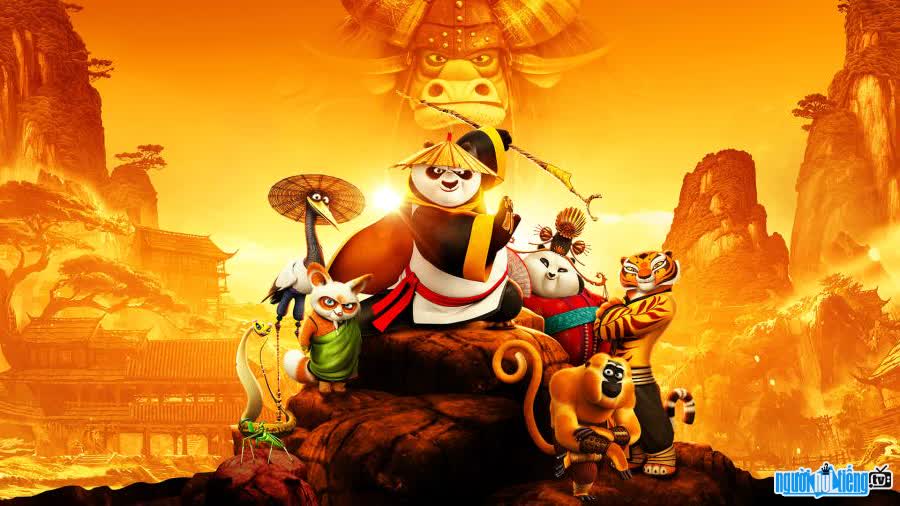
Kung Fu Panda movie pictures

Kung Fu Panda movie characters

Po panda pictures in Kung Fu Panda movie
#27
Top famous Movie
#234
Top famous Zodiac of Taurus
#294
Top famous Chinese Zodiac of The Rat
#12
Top celebrities born in 2008
#256
Top celebrities born in May
#106
Top celebrities born in 15th
Comment:
(Use English or Vietnamese)
Your name: Cotent:
Events in 2008 and 15-5
Events in the world in the birth year of Kung Fu Panda
- Jan. 1–31: Tribal violence erupts in Kenya after December 2007's presidential election between Raila Odinga, of the Orange Democratic Movement, and incumbent president Mwai Kibaki. More than 800 people die in violence across the country. Preliminary results had Odinga defeating Kibaki, 57% to 39%. In the days after the election, however, Odinga's lead dwindled and Kenya's electoral commission declared Kibaki the winner, 46% to 44%. International observers said the vote was rigged.
- Jan. 6: President of Georgia, Mikheil Saakashvili, is reelected, taking 52% of the vote. He had called for early elections in November 2007, after massive protests prompted by accusations that he abused power and stifled dissent.
- Jan. 31: Final report by an Israeli-government-appointed panel, the Winograd Commission, on Israel's 2006 war against the militant group Hezbollah in Lebanon, calls the operation a "large and serious" failure and criticizes the country's leadership for failing to have an exit strategy in place before the invasion.
- Feb. 10: Three men wearing ski masks steal four pieces of artwork from the Zurich Museum in one of the largest art robberies in history. In broad daylight, the robbers took a Cezanne, a Degas, a van Gogh, and a Monet, with a combined worth of $163 million. Feb. 18: Two of the paintings, the Monet and the van Gogh, are found in perfect condition in the backseat of an unlocked car in Zurich.
- Feb. 17: Kosovo's prime minister Hashim Thaci declares independence from Serbia. Serbian prime minister Vojislav Kostunica says he would never recognize the "false state." International reaction is mixed, with the United States, France, Germany, and Britain indicating that they plan to recognize Kosovo as the world's 195th country.
- Feb. 19: Cuban president Fidel Castro, who temporarily handed power to his brother Raúl in July 2006 when he fell ill, permanently steps down after 49 years in power.
- March 2: Dmitri A. Medvedev, a former aide to Russian president Vladimir Putin, wins the presidential election in a landslide. Putin will remain in a position of power, serving as Medvedev's prime minister.
- March 10: Some 400 Buddhist monks participate in a protest march in Lhasa, the capital of Tibet, to commemorate 1959's failed uprising against China's invasion and occupation of Tibet. March 14: Violence breaks out, with ethnic Tibetans clashing with Chinese citizens. Chinese police suppress the demonstrations, and Tibetan leaders say that more than 100 Tibetans are killed.
- April 2: Zimbabwe's Morgan Tsvangirai, of the opposition Movement for Democratic Change, says he won 50.3% of the vote in March 29's presidential election, defeating Robert Mugabe, who has been in power since 1980. April 14: The High Court of Zimbabwe dismisses the opposition's request for the release of election results. The government cracks down on the opposition.
- April 11: In Nepal, millions of voters turn out to elect a 601-seat Constituent Assembly that will write a new constitution. Maoist rebels win 120 out of 240 directly elected seats.
- May 2: More than a month after the presidential election, Zimbabwe officials announce that opposition candidate Morgan Tsvangirai, leader of the Movement for Democratic Change, defeated incumbent Robert Mugabe, 47.9% to 43.2%. A runoff election is necessary because neither candidate won more than 50%.
- May 28: Nepal's newly elected Constituent Assembly votes to dissolve the 239-year-old monarchy and form a republic. King Gyanendra is told he must step down within 15 days.
- June 19: Egypt brokers a cease-fire between Israel and Hamas, the militant group that controls the Gaza Strip. The agreement is intended to stem the violence in the region.
- June 22: Morgan Tsvangirai, of Zimbabwe's Movement for Democracy and Change, who was to face incumbent president Robert Mugabe in a runoff election, withdraws from the race, saying he could not subject his supporters to violence and intimidation. June 27: Mugabe wins the second round of the election, with about 85% of the vote.
- July 2: After being held for nearly six years by Revolutionary Armed Forces of Colombia (FARC) rebels in Colombia, 15 hostages, including three U.S. military contractors and French-Colombian politician Ingrid Betancourt, are freed by commandos who infiltrated FARC's leadership.
- July 14: Luis Moreno-Ocampo, the prosecutor of the International Criminal Court, formally charges Sudan's president, Omar Hassan al-Bashir, with genocide for planning and executing the decimation of Darfur's three main ethnic tribes: the Fur, the Masalit, and the Zaghawa.
- July 21: Radovan Karadzic, the Bosnian Serb president during the war in Bosnia in the 1990s, is arrested outside Belgrade and charged with genocide, persecution, deportation, and other crimes against non-Serb civilians. Karadzic orchestrated the massacre of almost 8,000 Muslim men and boys in 1995 in Srebrenica. July 30: Karadzic is transferred to The Hague to await trial.
- Aug. 7: Fighting breaks out after Georgian soldiers attack South Ossetia, a breakaway enclave in Georgia that won de facto independence in the early 1990s. Separatists in South Ossetia retaliate. Aug. 8: Russia enters the fray, with troops and tanks pouring into South Ossetia to support the region. Aug. 9 and 10: Russia intensifies its involvement, moving troops into Abkhazia, another breakaway region, and launching airstrikes at Tbilisi, the capital of Georgia. Aug. 13: France brokers a deal between Russia and Georgia. President George Bush sends U.S. troops on a humanitarian mission to Georgia. He warns Russia that if it doesn't observe the cease-fire, the country risks its standing in "the diplomatic, political, economic, and security structures of the 21st century." Aug. 29: Russia and Georgia sever diplomatic ties from each other. It is the first time Russia has cut off formal relations with one of its former republics, which gained independence in 1991.
- Aug. 7: Pakistan's governing coalition, led by Asif Ali Zardari, of the Pakistan Peoples Party, and Nawaz Sharif, leader of the Pakistan Muslim League-N, begins impeachment proceedings against President Pervez Musharraf on charges of violating the constitution and misconduct. Aug. 18: Musharraf resigns as president.
- Aug. 15: Nepal's Constituent Assembly elects Maoist leader Pushpa Kamal Dahal, known as Prachanda, as prime minister.
- Aug. 22: As many as 90 Afghan civilians, 60 of them children, die in an airstrike by coalition troops in the western village of Azizabad. It is one of the deadliest airstrikes since the war began in 2001, and the deadliest for civilians. The U.S. military refutes the figures, which were confirmed by the UN.
- Sep. 2: Thai prime minister Samak Sundaravej declares a state of emergency when protests between government supporters and the opposition, People's Alliance for Democracy (PAD), which is calling for Samak's resignation, turn violent. Sep. 9: Samak is forced from office when Thailand's Constitutional Court rules that he violated the constitution by being paid to appear on a cooking show. Somchai Wongsawat, the first deputy prime minister, becomes acting prime minister. Sep. 17: Parliament elects Somchai prime minister.
- Sep. 6: Asif Ali Zardari, leader of the Pakistan Peoples Party and the widower of former Pakistani prime minister Benazir Bhutto, wins 481 out of 702 votes in the two houses of Parliament to become president.
- Sep. 15: In Zimbabwe, President Robert Mugabe and opposition leader Morgan Tsvangirai, who defeated Mugabe 48% to 43% in March 2008 elections but boycotted the June runoff election because of voter intimidation, agree to a power-sharing deal. Tsvangirai will serve as prime minister and the opposition will control 16 ministries. The governing party will control 15; Mugabe will continue as president.
- Sep. 20: A truck bomb explodes outside the Marriott Hotel in Islamabad, Pakistan, killing more than 50 people and wounding hundreds. A previously unknown group, Fedayeen Islam, takes responsibility for the attack.
- Sep. 21: Israeli prime minister Ehud Olmert, who is under investigation for corruption, resigns.
- Sep. 24: Japan's Taro Aso, a conservative and former foreign minister, becomes prime minister, succeeding Yasuo Fukuda, who stepped down amid criticism of his handling of domestic issues.
- Oct. 1: The Iraqi government takes command of 54,000 mainly Sunni fighters from the U.S., which had been paying the fighters for their support. The fighters, members of awakening councils, turned against al-Qaeda in Mesopotamia in 2007 and began siding with the U.S.
- Nov. 16: Iraq's cabinet passes by a large margin a status of forces agreement that will govern the U.S. presence in Iraq through 2011. The pact calls for the withdrawal of all U.S. combat troops by Dec. 31, 2011, and the removal of U.S. troops from Iraqi cities by the summer of 2009. In addition, the agreement gives Iraqi officials increased jurisdiction over serious crimes committed by off-duty Americans who are off base when the crimes occur. Nov. 27: The Iraqi Parliament votes, 149 to 35, to approve the status of forces agreement. Dec. 4: The Presidencial Council, made up of Iraq's president and two vice presidents, gives final approval to the status of forces agreement.
- Nov. 26: More than 170 people are killed and about 300 are wounded in a series of attacks on several landmarks and commercial hubs in Mumbai, India. Indian officials say ten gunmen carried out the attack. It took Indian forces three days to end the siege. Deccan Mujahedeen, a previously unknown group, claims responsibility for the attacks. Pakistan officials deny any involvement in the attacks, but some Indian officials hint that they suspect Pakistani complicity.
- Dec. 2: Thailand's Constitutional Court ruling that the governing People Power engaged in fraud during the 2007 elections forces Prime Minister Somchai Wongsawat from power and bans party members from politics for five years. Dec. 15: Parliament elects Abhisit Vejjajiva, the head of the Democrat Party, as prime minister.
- Dec. 14: At a news conference in Baghdad, a reporter for Al Baghdadia, a Cairo-based satellite television network, hurls his shoes at President Bush and calls him a "dog." The shoes narrowly miss Bush's head.
- Dec. 22: Guinea's despotic president, Lansana Conte, dies after 24 years in power. Dec. 24: Junior army leaders launch a coup. Army captain Moussa Camara takes over as president of the republic.
- Dec. 28: Days after a cease-fire between Israel and Hamas expired, Hamas begins launching rocket attacks into Israel, which retaliates with airstrikes that kill about 300 people. Israel targets Hamas bases, training camps, and missile storage facilities.
Founding day Kung Fu Panda (15-5) in history
- Day 15-5 year 1862: The U.S. Department of Agriculture was created by an act of Congress on this day.
- Day 15-5 year 1911: The Standard Oil Company, headed by John D. Rockefeller, was ordered dissolved by the Supreme Court, under the Sherman Antitrust Act.
- Day 15-5 year 1918: The first air mail route in the U.S. was established between New York and Washington, DC, with a stop at Philadelphia.
- Day 15-5 year 1930: On a Boeing Air Transport flight between Oakland and Chicago, Ellen Church became the first airline stewardess.
- Day 15-5 year 1940: Nylon stockings went on sale for the first time in the United States.
- Day 15-5 year 1972: Alabama Governor George Wallace was shot and crippled as he campaigned for the presidency.
- Day 15-5 year 1988: The Soviet Union began to withdraw its estimated 115,000 troops from Afghanistan.
Other famous Movie
Famous people born in 15-5-2008
Note about Movie Kung Fu Panda
Kung Fu Panda infomation and profile updated by nguoinoitieng.tv.
Born in 2008
